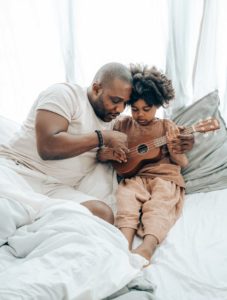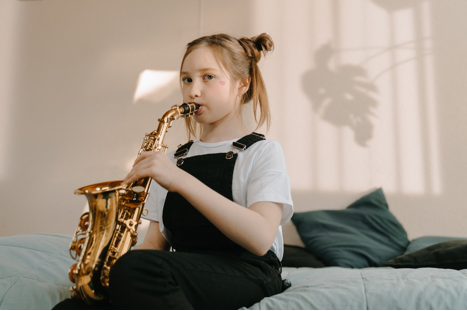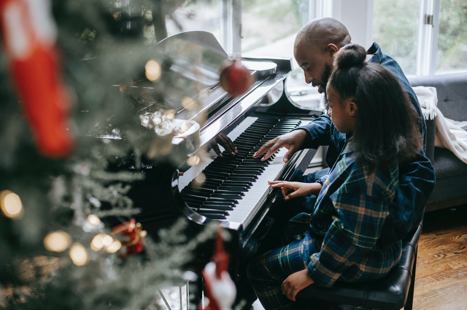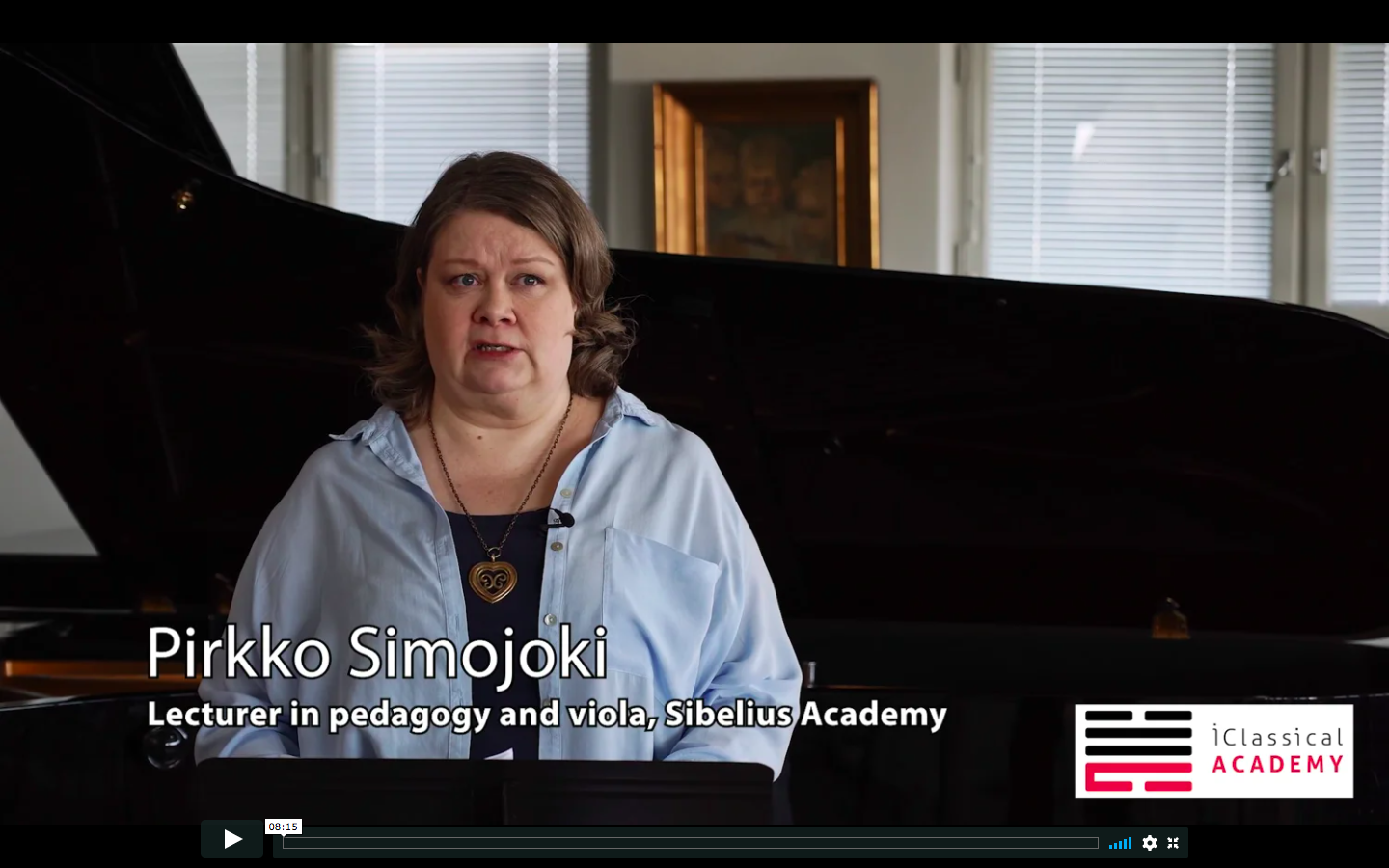6 Ways That Can Be A Big Help For Learning Music
by Annika Wells
Learning Music
 The science or art of arranging tones or sounds in progression, in the mix, and in fleeting connections to deliver a piece having solidarity and coherence is called "Music." Learning music can raise understudies' familiarity with particular sounds, which is significant in figuring out how to peruse and compose, and for English Language Learners, to accomplish familiarity. Playing instruments and recognizing distinctive melodic tones, pitches, and tones constructs aural aptitudes. Understudies can make soundscapes and carry on stories with instruments speaking to various characters. Such exercises add another, more profound measurement to the learning experience.
The science or art of arranging tones or sounds in progression, in the mix, and in fleeting connections to deliver a piece having solidarity and coherence is called "Music." Learning music can raise understudies' familiarity with particular sounds, which is significant in figuring out how to peruse and compose, and for English Language Learners, to accomplish familiarity. Playing instruments and recognizing distinctive melodic tones, pitches, and tones constructs aural aptitudes. Understudies can make soundscapes and carry on stories with instruments speaking to various characters. Such exercises add another, more profound measurement to the learning experience.
Another way to learn music is through Online High School, which is a non-traditional way of teaching by using the internet. Online High School is cost-effective and time-effective. Accessibility, facility, and individual attention are the main features. A very popular website that offers online training masterclass is iclassical-academy.com. It offers violin, cello, piano, and other instruments to learn. There are proficient teachers available who help students to learn music. It also has different membership plans with monthly, yearly, and lifetime offers. If someone is interested in learning music, then have a look at this amazing website.
Six ways that can help to learn music
Choose Music and Instrument
When you have made your mind learn music, you must select a piece of music and an instrument to go for music that you already like would be easier for you to learn. Make a clear plan in your mind about the music and instrument you are going to select. Different people have different choices. Some like to play guitar, piano, flute while others like to play violin or drum, etc. If you select a music or instrument f your choice, you will be motivated, and it would be fun for you to learn. Make sure that an instrument you are picking must suits your way of life as well. If you are continually moving, picking a more convenient instrument like the clarinet may be ideal. If you have dainty dividers and grumpy neighbors, an advanced piano with adjustable volume may be generally appropriate. But again, it's always your choice that what you pick.
Set Aims
Set sensible aims for what you need to realize and how long you're ready to spend rehearsing. Aim setting helps keep you centered, and we should you all the more effectively track your enhancements. In defining your objectives, consider why you need to learn music in any case: Is it a pleasant pastime for you to do at home without help from anyone else? Would you like to stick with your performer companions? At that point, consider the guide to get yourself there.
Practice, practice, practice
Practice makes a man perfect!. The ideal approach to meet your objectives is to practice. Set a training timetable to assist you with staying aware of your learning. Practice meetings should be customary and coordinated with the end goal that interruptions are limited. You can also have "music breaks" in the day to destress before preparing for your next assignment of the day. While you should plan ordinary practice, you should stay adaptable too. At times, you may have more squeezing activities than practicing music.
Record and Listen
Another great tip for practicing is to record yourself. At the point when we're playing, it tends to be difficult to zero in on all parts of our music-making and truly tune in to the sound. Recording yourself and tuning in back to the chronicle will let you center around the sound you are making. You can hear beat changes, finger flubs, or places where your statement could be improved. At that point, you can return and zero in on those subtleties in your training meetings. An educator can manage you in this from the start; however, at that point, through tuning in, you can turn into your instructor.


Study Music
When you are learning music, you must know the history of it too. It would help if you studied music to gain more knowledge. This tip will help you a lot in learning music. Studying some music hypothesis and music history can help balance your musicality and contextualize the learning pieces. Music hypothesis will help you sort out the songs and harmonies in your piece, subsequently making them simpler to learn, and you may consider likenesses to be melodic structures as you learn more pieces.
Ask others
While you are learning music, a very effective tip is to ask others for help who have learned music. They may be your teachers, friends, and family. It will not only enhance your techniques, but it will also help to increase your performance.
Online Classes
To increase the effectiveness of learning in an online class, the student's approach must be hesitation-free. They must ask questions frequently to clarify their misconception and gel in well with the ideas.
In virtual classrooms, it is vital to be cooperative with the classmates, share notes, do the discussions, and engage in healthy group discussions. It will not only promote understanding but also enhance the ability of a learner to review, repeat, and revise the content which is studied already.
Online classes can build up real pressure and cause too much stress, more specifically in this time of the global pandemic. But a balanced approach keeping all the above-mentioned techniques in mind and practice pressure can be avoided, and productive results can be availed; otherwise will result in the opposite.
Self-discipline, time management, and taking control of all your activities are necessary catalysts for gaining effective learning results from online classes.
The Art of Teaching Music to Children
A crash course in positive pedagogic

Online Course with Pirkko Simojoki
A crash course in positive pedagogic with Prof Simojoki, a Finnish viola teacher, conductor, and renowned expert on teaching music to children and teenagers takes you through the key challenges of music pedagogy with children.
Content:
- The Potential
- Self-Confidence
- Positive Demanding
- Mistakes
- Stage Confidence
- Motivation
- Collaborating with parents
- New comparing to cooperation
11 videos, for a total running time of 1 hour 25'24.
